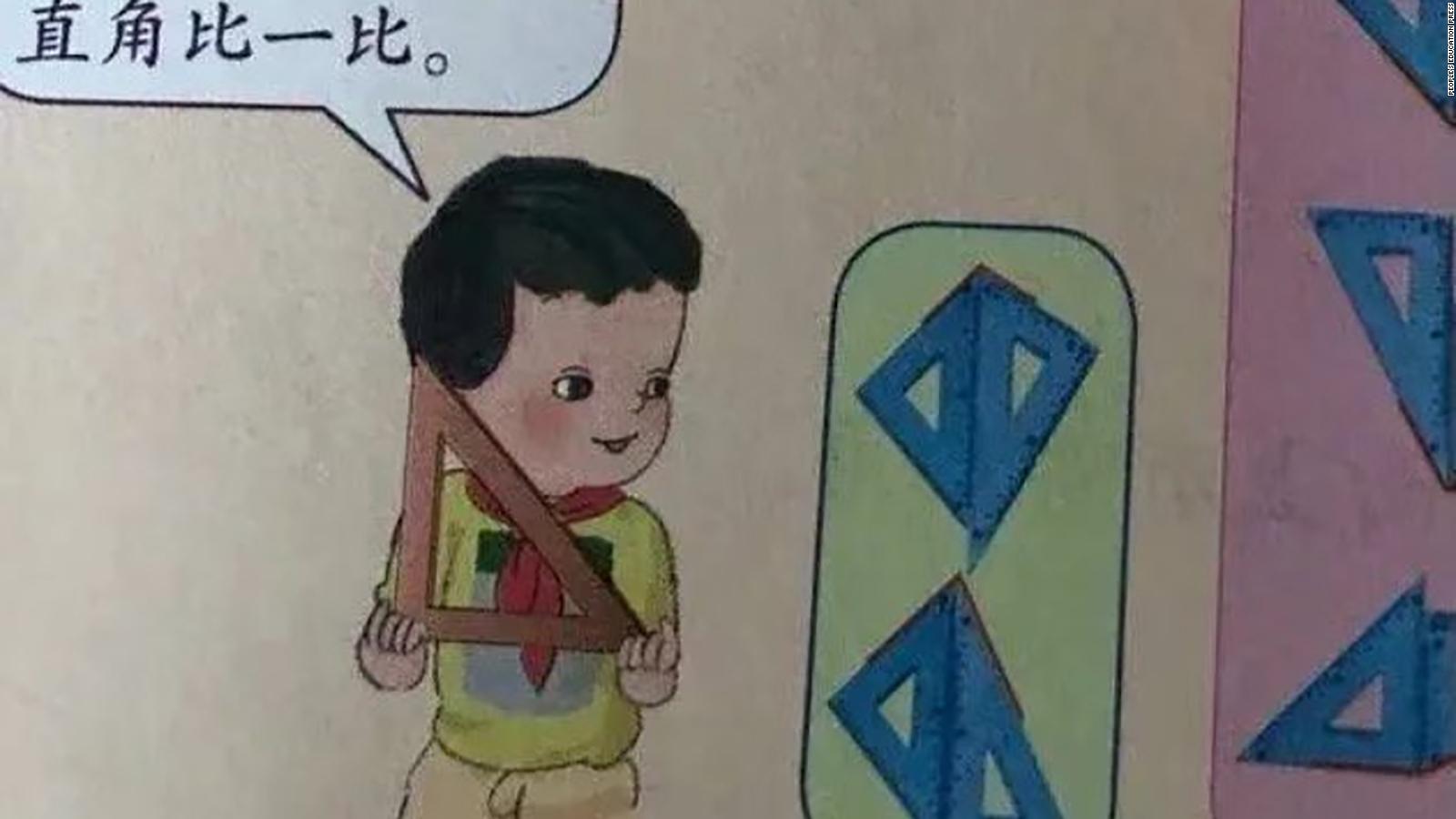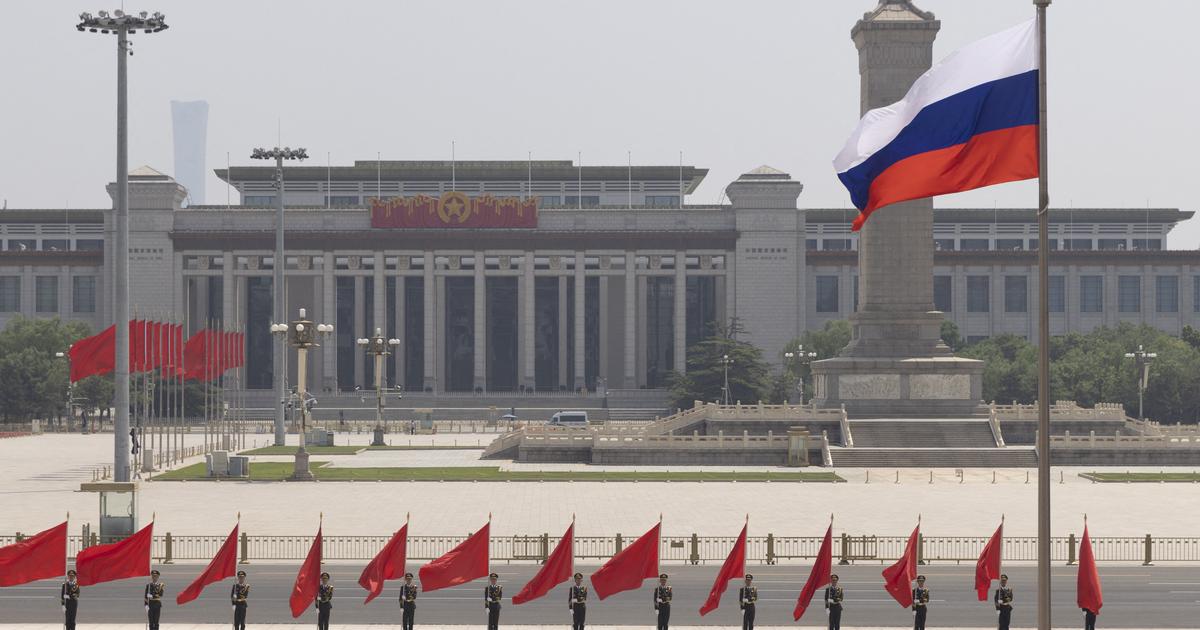An illustration used in elementary math textbooks published by the People's Education Press in China.
Hong Kong (CNN) --
China has ordered a nationwide review of school textbooks after illustrations deemed ugly, sexually suggestive and veiledly pro-American caused a public outrage.
The news has alarmed some experts and parents who fear the campaign could turn into a political witch hunt and represent an unnecessary tightening of the country's already strict censorship of cultural publications.
The drawings, found in a series of math textbooks that have been used in Chinese primary schools for nearly a decade, are controversial for several reasons.
Some Chinese netizens have criticized drawings of children with small, droopy, wide eyes and large foreheads as ugly, offensive and racist.
Others have been outraged by what they see as sexual overtones in the drawings.
Some of the images show young boys with a bulge in their pants that looks like the outline of their genitals;
in an illustration of children at play, one boy has his hands on a girl's chest while another tugs on a girl's skirt;
in another drawing, a girl's underwear is seen as she jumps rope.
advertising
"Pro-USA"
Netizens have also accused the illustrations of being "pro-US" because they show several children wearing clothing emblazoned with stars and stripes and the colors of the American flag.
A drawing showing an inaccurate representation of the stars on the Chinese flag was accused of being "anti-Chinese".
Some Chinese netizens have been outraged by what they see as sexual overtones in the illustrations.
Outrage over the illustrations has dominated discussions on Chinese social media since Thursday, when photos of the drawings first circulated online.
Various related hashtags have racked up tens of millions of views on Weibo, the Chinese Twitter-like platform.
Many expressed their shock and anger that such "low-quality" illustrations had not only found their way into textbooks published by the state-run Prensa de Educación Popular, the country's largest textbook publisher founded in 1950, they have gone unnoticed for so many years.
Textbooks have been used throughout the country since 2013.
Nationalist
influencers
were quick to blame "Western cultural infiltration," claiming—without providing evidence—that the illustrators had been covertly working for "foreign forces," especially the United States, to corrupt the souls of innocent Chinese schoolchildren.
withdraw books
Amid the uproar, the Popular Education Press said on Thursday it was withdrawing the textbooks and redesigning the illustrations, but that failed to quell public anger.
On Saturday, China's Ministry of Education stepped in, ordering the publisher to "rectify and reform" its publications and ensure that the new version would be available by the fall semester.
It also ordered a "thorough inspection" of textbooks across the country to ensure that teaching materials "adhere to the correct political directions and values, promote Chinese culture, and conform to public aesthetic tastes."
Some Chinese netizens have criticized images of children with small, droopy, wide-open eyes and large foreheads as ugly, offensive and racist.
But the campaign is not limited to aesthetic and moral values, it also has an ideological component.
Textbooks have been at the center of Chinese leader Xi Jinping's efforts to tighten ideological control over the country's youth and reject the influence of "Western values."
Under Xi, the Chinese government has banned foreign teaching materials—including textbooks and classic novels—in all public primary and secondary schools, stating that all teaching materials "must reflect the will of the party and the country.
Attacks on illustrators
Criticisms of textbooks have also turned into personal attacks on illustrators.
Wu Yong, whose art studio designed the illustrations, was accused of being a spy for the US Central Intelligence Agency (CIA).
Not even Wu's alma mater, the Academy of Art and Design at China's prestigious Tsinghua University, was spared the wrath of wary nationalist users.
Some accused the academy of being a "hotbed of traitors";
others took aim at its logo, saying it resembles a kneeling person holding a fork, a symbol interpreted as bowing to the West (some history bloggers have since pointed out that the logo was actually an adaptation of the character "art" in an ancient Chinese script called oracle bone script).
As a sign of how far nationalist anger has gone, even the prominent graphic artist Wuheqilin — who made his name by mocking Western countries with his ultra-nationalist illustrations — has come under fire.
Nationalists accused Wuheqilin of aiding anti-China forces after he suggested that the poor quality of the illustrations was likely, in part, the result of low commissions offered to designers, a problem he said the industry had faced. during years.
"I am concerned that this has become a highly politically charged issue that does not allow for impartial analysis of the relevant facts," said Dali Yang, a political scientist at the University of Chicago.
In recent days, a growing volume of educational material has been criticized on the Internet for pandering to Western culture or promoting problematic values.
Others have taken aim at the illustrations in sex education books, raising fears that the publication of these educational materials—already in short supply in China—will also be affected.
Paul Huang, a father of a 5-year-old boy in the southern city of Guangzhou, said that while he was glad the poorly designed illustrations were removed from textbooks, he worries the issue has become politicized.
"As a parent, compared to infiltration by foreign forces, I am more concerned about overtly strict censorship of content that could have given children a freer and more diverse perspective," he said.
"That censorship is making our textbooks increasingly conservative and boring, which is not good for children's development."
Some publishers have already been affected.
On Saturday, 7.Hi Books, a manga publisher in the eastern city of Hangzhou, apologized to its readers for having to postpone publishing its comics.
"We have been informed today that due to a social incident caused by a certain publisher, all published children's picture books have entered a self-inspection phase, and our unpublished comics will have to be postponed accordingly," he said on Weibo.
In the comments section, many readers said they saw it coming.
"It's starting again. They never regulate what should be regulated, and only target those who should not be targeted," said the most voted comment, with 30,000 thumbs up.
ChinaBooks









/cloudfront-eu-central-1.images.arcpublishing.com/prisa/YWKOBXUJKVHHBB5EUATBWOWCNA.jpg)